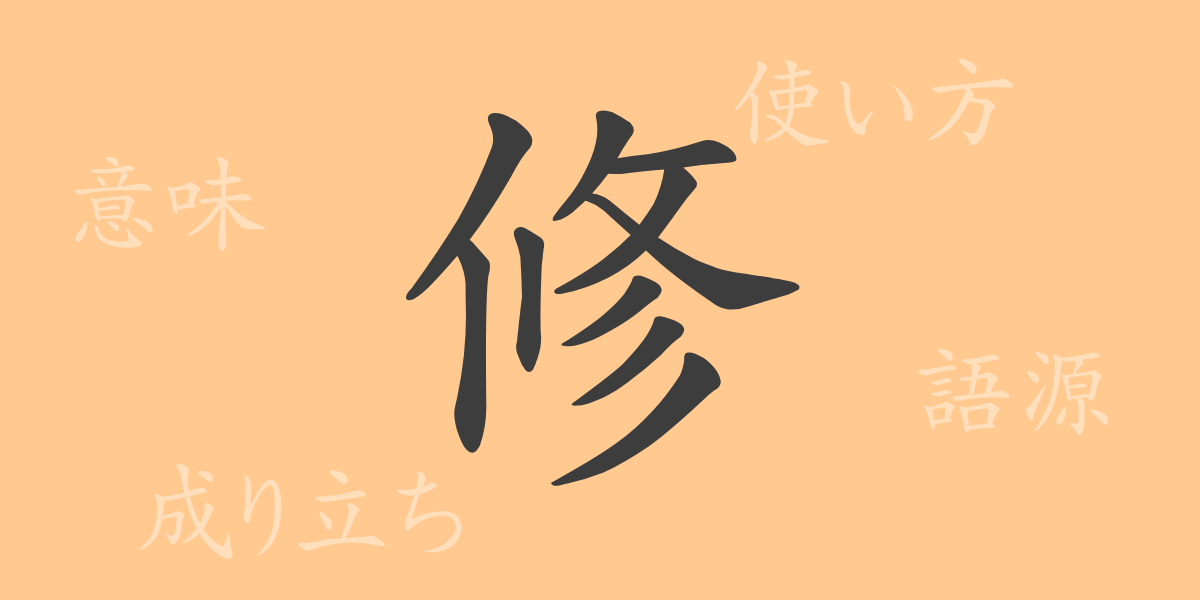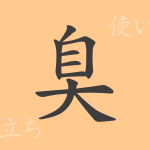In Japanese, each kanji character carries profound meaning and history. The kanji “修(しゅう)” is no exception. Widely used as a common kanji in Japanese, “修(しゅう)” often evokes images of learning and cultivation, making it prevalent in contexts related to education and self-improvement. This article explores the origins, meanings, usage, and commonly used idioms and phrases involving “修(しゅう),” revealing its captivating charm.
Origin of 修(しゅう) (Etymology)
The kanji “修(しゅう)” developed from ancient Chinese pictographs. Originally, it depicted an image of a hand holding long grass, symbolizing the act of bundling grass by hand. This image gave rise to the meaning of taking time to perform an action. This notion of investing time is reflected in words like “修行(しゅぎょう, training)” and “修正(しゅうせい, correction),” signifying the idea of improving and elevating oneself over time.
Meaning and Usage of 修(しゅう)
The kanji “修(しゅう)” is used in verbs such as “修める(おさめる, to cultivate)” and “修正(しゅうせい, to correct),” as well as in nouns like “修士(しゅうし, master)” and “修業(しゅうぎょう, training).” It primarily signifies the act of polishing or elevating something. Additionally, it can denote learning and adhering to moral or ethical principles, essentially cultivating one’s path in life.
Readings, Stroke Count, and Radical of 修(しゅう)
Here are the fundamental details of the kanji “修(しゅう).”
- Readings: The on’yomi (音読み) reading is “シュウ,” and the kun’yomi (訓読み) readings include “おさ・める” and “なが・い.”
- Stroke count: “修(しゅう)” consists of 10 strokes.
- Radical: The radical is “人(ひと・へん),” indicating the character relates to people.
Idioms, Phrases, and Proverbs Using 修(しゅう)
The kanji “修(しゅう)” is found in many idioms, phrases, and proverbs, each with unique meanings. For example, “修行(しゅぎょう)” refers to the continuous effort to cultivate specific skills or mental discipline. “修繕(しゅうぜん)” means to repair something broken to make it usable again. Additionally, “修羅場(しゅらば)” is used to describe extremely harsh or challenging situations.
Conclusion on 修(しゅう)
The kanji “修(しゅう)” embodies the notions of self-improvement and refinement, playing a crucial role in the Japanese language. It is used to express the will to master a field of study or the act of restoring something to its proper state. Understanding the meanings and uses of “修(しゅう)” enhances the appreciation of Japanese’s richness and the joy of mastering its expressions.

























